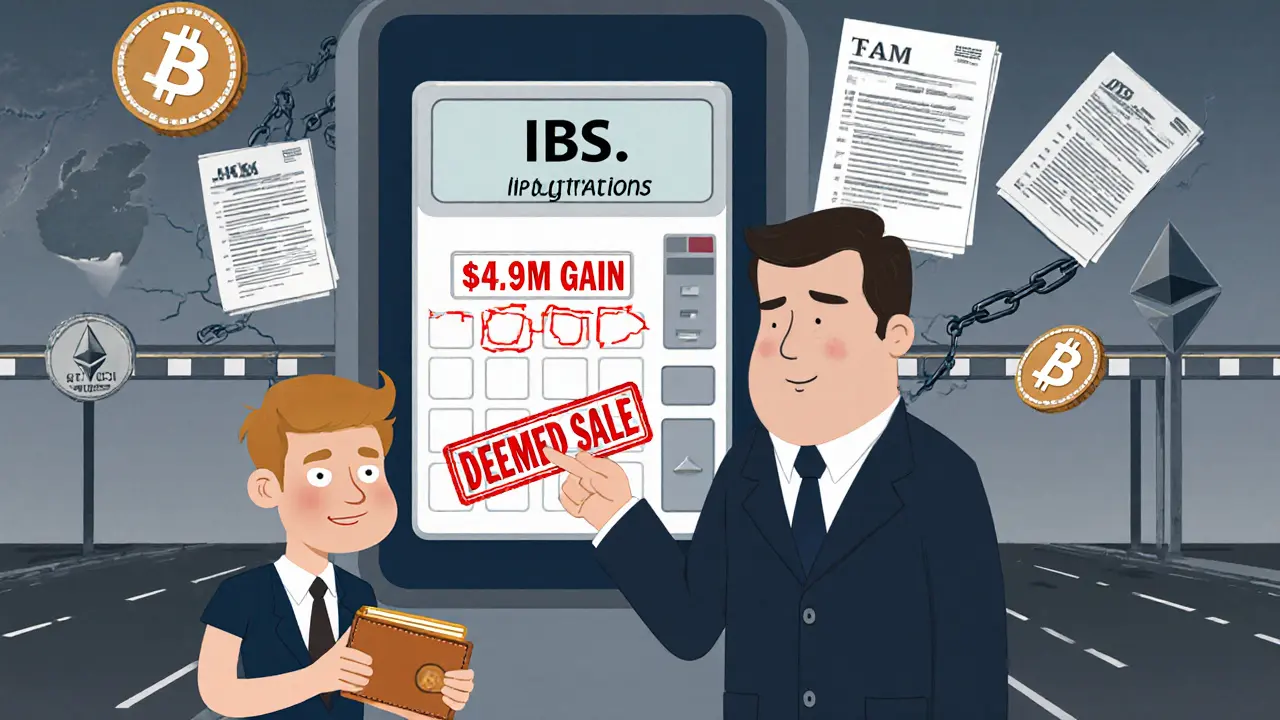IRS Crypto Tax: What You Owe, When You Pay, and How to Stay Compliant
When the IRS crypto tax, the U.S. Internal Revenue Service's rules for taxing digital assets as property rather than currency. Also known as crypto income tax, it applies to every trade, sale, gift, or use of cryptocurrency that results in a gain or loss. This isn’t about holding Bitcoin—it’s about what you do with it. If you bought ETH for $2,000 and sold it for $3,500, the $1,500 profit is taxable. Same if you traded SOL for AVAX, paid for coffee with DOGE, or earned staking rewards in USDC. The IRS doesn’t care if you didn’t cash out to fiat. They track transactions on-chain, and exchanges report to them.
Most people don’t realize how often they trigger a taxable event. Buying a NFT? Taxable. Sending crypto to a friend? Taxable. Mining or staking crypto? Taxable as ordinary income at the market value when you receive it. Even if you didn’t sell, you still owe taxes on the value you received. That’s why so many crypto users get caught off guard during tax season. The crypto tax reporting, the process of documenting all crypto transactions for IRS Form 8949 and Schedule D. isn’t optional anymore. The IRS now asks directly on Form 1040: "Did you receive, sell, send, exchange, or otherwise acquire any financial interest in any virtual currency?" A simple "yes" opens the door to scrutiny.
What you need isn’t guesswork—it’s records. Track every transaction: date, amount, value in USD at time of trade, and whether it was a buy, sell, or transfer. Use a crypto tax tool if you traded more than a few times. Don’t rely on exchange summaries—they often miss internal transfers or DeFi interactions. The IRS crypto audit, an IRS review of a taxpayer’s crypto activity to verify reported gains and losses. is real. Thousands have received letters asking for transaction histories. If you can’t prove your numbers, the IRS will estimate your gains—and they’ll assume the worst.
Some think hiding crypto activity helps. It doesn’t. The IRS has data from Coinbase, Kraken, Binance US, and others. They’re cross-referencing bank deposits, wallet addresses, and blockchain analytics. Even if you use a no-KYC exchange, your on-chain footprint is public. The real risk isn’t fines—it’s penalties that can double your tax bill. And if you’re in a state like California or New York, you’re paying state taxes too, on top of federal.
But it’s not all bad news. You can lower your tax bill. Hold crypto for over a year before selling? You pay long-term capital gains rates—often way lower than your income tax rate. Offset gains with losses from other trades. Keep receipts for crypto donations to charities—they’re tax-deductible. Use tax-loss harvesting to turn bad trades into savings. The goal isn’t to avoid taxes—it’s to pay the right amount, legally.
Below, you’ll find real examples of how people got tangled in crypto tax traps, how countries like India and Vietnam handle similar rules, and what to do if you missed reporting last year. No fluff. Just what you need to get compliant—and stay that way.

Exit Tax on Crypto Assets for US Expatriates: What You Need to Know in 2025
The U.S. exit tax applies to crypto assets when you renounce citizenship. Learn how the IRS calculates your tax bill, what triggers it, and how to legally reduce or avoid it in 2025.
© 2026. All rights reserved.